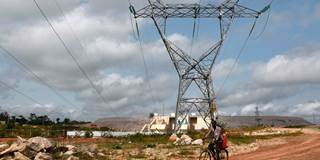The Power of Mini-Grids
Despite impressive economic development in recent years, Africa still lags far behind on energy provision, with almost two-thirds of the continent’s residents lacking access to electricity. But there is a flexible, fast, and low-cost option for closing the power gap.
HARARE – Despite impressive economic development in recent years, Africa still lags far behind on energy, with almost two-thirds of the continent’s citizens lacking access to electricity. While getting more power to the people is an important goal, extending electricity grids is expensive and slow. Meanwhile, off-grid options may not be sufficient to meet people’s energy needs. Fortunately, there is a third approach that can help fill in the gaps: mini-grids.
Mini-grids are essentially localized electricity networks that supply several users, whether households or businesses. They can be grid-connected, but they do not have to be. And, as a new report from the Africa Progress Panel (of which one of the authors is a member) shows – and as another report by the Rocky Mountain Institute underscores – mini-grids are an important piece of Africa’s energy puzzle.
Mini-grids can have a major competitive advantage over grid extension in rural and remote areas, because they can provide electricity more quickly and at much lower cost. Because mini-grids require less capital investment than grid expansion, it can be easier to secure financing for them, meaning that they can electrify communities that might have to wait years for a grid connection.



HARARE – Despite impressive economic development in recent years, Africa still lags far behind on energy, with almost two-thirds of the continent’s citizens lacking access to electricity. While getting more power to the people is an important goal, extending electricity grids is expensive and slow. Meanwhile, off-grid options may not be sufficient to meet people’s energy needs. Fortunately, there is a third approach that can help fill in the gaps: mini-grids.
Mini-grids are essentially localized electricity networks that supply several users, whether households or businesses. They can be grid-connected, but they do not have to be. And, as a new report from the Africa Progress Panel (of which one of the authors is a member) shows – and as another report by the Rocky Mountain Institute underscores – mini-grids are an important piece of Africa’s energy puzzle.
Mini-grids can have a major competitive advantage over grid extension in rural and remote areas, because they can provide electricity more quickly and at much lower cost. Because mini-grids require less capital investment than grid expansion, it can be easier to secure financing for them, meaning that they can electrify communities that might have to wait years for a grid connection.